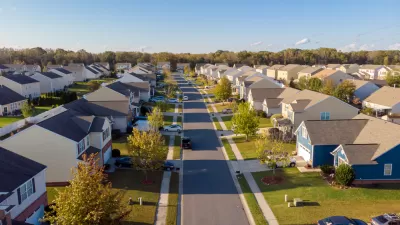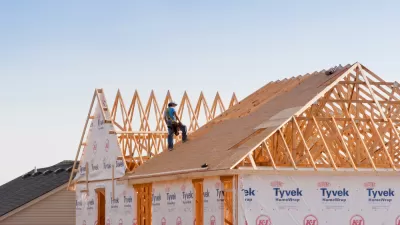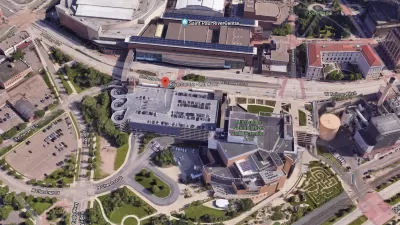Stephen Smith takes a look at land use regulations in Brazil, where developers are still required to make room for cars that its growing cities can't support.
Brazil is no stranger to the challenges facing global cities today. Simultaneously hailed for innovations like bus rapid transit and lamented for its squalid favelas, the country sits at the bleeding edge of urban policy.
And so it comes as a surprise that throughout the nation, Brazil's traffic woes are worsened by seemingly anachronistic minimum parking requirements. As Smith explains, "A few decades ago Brazil joined a number of developing nations in adopting American-style minimum parking requirements for new developments... While planners seek to make sure everyone who has a car has some place to park it, critics contend that rather than simply making room for those who will inevitably drive, the policies are actively encouraging motorization."
Brazil owes its auto-oriented policy in part to the legacy of modernist urban design, beginning in the middle of the last century. Planned in that tradition, the capital city of Brasília "eschewed the pedestrian-and-transit-oriented trappings of other cities. The city was originally envisioned... without sidewalks or stoplights on the main boulevards, and the abundance of cloverleaf intersections testifies to the city's original planners favoring of motor traffic over all else."
But the requirements do not reflect the reality of already-overtaxed streets in cities throughout Brazil, where critics argue that the needless parking takes away precious space and constrains better forms of growth. One commercial developer in São Paulo said, of developers' feelings about the requirements, "No, they are not happy, but it is what it is. It's the status quo, and no one questions it anymore."
Thanks to Stephen J. Smith
FULL STORY: As Traffic Snarls Brazil's Cities, Officials Plan For More Cars

Alabama: Trump Terminates Settlements for Black Communities Harmed By Raw Sewage
Trump deemed the landmark civil rights agreement “illegal DEI and environmental justice policy.”

Planetizen Federal Action Tracker
A weekly monitor of how Trump’s orders and actions are impacting planners and planning in America.

The 120 Year Old Tiny Home Villages That Sheltered San Francisco’s Earthquake Refugees
More than a century ago, San Francisco mobilized to house thousands of residents displaced by the 1906 earthquake. Could their strategy offer a model for the present?

Ken Jennings Launches Transit Web Series
The Jeopardy champ wants you to ride public transit.

BLM To Rescind Public Lands Rule
The change will downgrade conservation, once again putting federal land at risk for mining and other extractive uses.

Indy Neighborhood Group Builds Temporary Multi-Use Path
Community members, aided in part by funding from the city, repurposed a vehicle lane to create a protected bike and pedestrian path for the summer season.
Urban Design for Planners 1: Software Tools
This six-course series explores essential urban design concepts using open source software and equips planners with the tools they need to participate fully in the urban design process.
Planning for Universal Design
Learn the tools for implementing Universal Design in planning regulations.
Clanton & Associates, Inc.
Jessamine County Fiscal Court
Institute for Housing and Urban Development Studies (IHS)
City of Grandview
Harvard GSD Executive Education
Toledo-Lucas County Plan Commissions
Salt Lake City
NYU Wagner Graduate School of Public Service





























